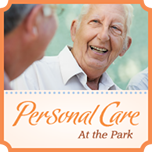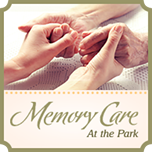April 7th marks an important awareness day that is celebrated worldwide every year since 1948. The World Health Organization (WHO) uses this day, known as World Health Day, to generate a greater amount of attention surrounding a specific disease or disorder. This year they have decided to highlight depression around the campaign titled “Let’s Talk.”
Sadly, depression affects over 300 million people globally, and due to the stigma surrounding mental illness, not everyone gets treatment for it. This is also a major issue within the elderly community. As we grow older, we lose loved ones and quite possibly some of our independence. Also, some seniors become isolated. Their friends and family move away from them, and their lack of mobility keeps them from being in contact with the ones they love.
For these reasons, it would be normal to feel sad, however, this doesn’t mean it’s a normal part of aging. Growing older does not mean you grow sadder. It should be quite the opposite. Therefore, if you suspect an elderly loved one may be experiencing depression, do as World Health Day suggests: talk about it. But in order to do so, you’ll need to know what the signs and symptoms are.
They are as follows:
Lack of Care for Personal Appearance
One of the biggest signs that your parent or loved one is suffering from depression is their appearance. If they neglect to bathe or shower for extended periods of time, or if they generally do not care what they’re wearing from day-to-day, they might be suffering from depression. A general disregard for one’s outward appearance is usually an early warning, because it shows a lack of pride, and we should always be proud of how we look!
Overly Irritated
Sometimes small things can get to us, especially if they occur over and over again. However, it isn’t healthy for us to constantly be irritated. A level head leads to better mental health. That’s why if you notice mom, dad, or a loved frequently perturbed by minor incidences, you should remain watchful. Irritability is also a major symptom of depression along with other sudden mood swings.
Social Isolationism
Being socially isolated can cause depression, however if your loved one is already depressed, he or she might not want to be social. It’s an ugly Catch 22. If you notice that a loved one is unusually brief on the telephone or has cancelled lunch and dinner dates for no reason, he or she may be suffering from a mental illness such as depression. If this is the case, then it’s best to deny their wishes of being alone. Sometimes seeing a friendly or familiar face is enough to get us out of that negative funk. Turn their day around by going to visit them.
Increase in Pain
Even though depression and sadness may seem to go hand-in-hand, that is not always the case. Many seniors who suffer from depression will often say that they don’t feel sad. Instead they might tell you that their arthritis is really acting up, or they’re suddenly getting terrible headaches every day. This is another symptom of depression for seniors. Perhaps their mood won’t alert you to their depression but their increase in pain from various chronic conditions may.
Don’t Remain Silent
This year’s tagline for World Health Day truly represents the first step of recovery for depression or any other mental health issue: Let’s Talk. If you suspect a loved one is feeling down or depressed, we encourage you to talk to them. Even though most cases of depression don’t require clinical care for an individual to recover, that does not mean you should just sit back and wait for it all to unfold. It’s important for our senior loved ones to know that they have a strong supportive network backing them at all times!
All this month for National Nutrition Month, we’ve been detailing the proper diet to ensure healthy aging. What we put into our bodies really matters as we age. This is especially important if you or a loved one has been diagnosed with Alzheimer’s disease.
Specific nutrients and vitamins and minerals can help delay or relieve some of the symptoms. Of course, there is no cure yet for Alzheimer’s disease or any other form of dementia, so we’re not proclaiming a miracle cure. However, we are providing valuable nutritional tips that may help ease some of the symptoms from AD or reduce your chances of getting this disease. They are:
Keep It Balanced
One of the most common offered up pieces of advice for one’s diet is to keep their meals balanced. This goes for people with or without Alzheimer’s disease. Our body requires so many nutrients to run smoothly that it’s impossible to think that eating only one or two key items would sufficiently keep us going. If you cook for a loved one with Alzheimer’s disease, make sure their plate looks like a painter’s palette. It should include brightly colored fruits and vegetables, whole grain rice for some earthly tones, and lean meats as the base. If you’re able to frequently cook your loved one a well-balanced meal than they’ll most likely have better days than they have bad days.
Reduce Sugar Intake
Consuming too much processed sugar can lead to diabetes. It’s an awful disease where the body’s inability to produce or respond to the hormone insulin results in the elevated levels of glucose in the blood. In addition to the lack of response to insulin, there has also been an increasing amount of reports that have linked diabetes to Alzheimer’s disease.
You might be wondering, “How does this affect the brain?” Well, it turns out, as a byproduct of diabetes, irregular proteins are also formed and cluster together to create plaque that gets tangled in the brain. They travel through your blood stream and end up getting stuck in your gray matter. Of course, it’s much more complicated than that. If it what was really that simple, scientists would have been able to prevent it already. Unfortunately, they have not been able to solve this mystery yet, so doctors and scientists alike have just issued warnings to watch out for your consumption of sugar. It has the potential to increase your chances of Alzheimer’s disease or make the symptoms worse.
Limit Saturated Fats and Cholesterol
“What’s good for the heart is good for the brain.” This saying provides a lot of much needed information about our diets and our overall health. Much like diabetes being linked to Alzheimer’s disease, poor heart health can be linked to poor cognitive function. According to a recent study done by the American Heart Association, those who take care of their heart also take care of their brain. By reducing your chances of heart attack, you’ll also be reducing your chances at cognitive impairment. It makes a lot of sense if you think about it. By consuming too much saturated fats and cholesterol, you’re damaging your major blood vessels in your heart, which in turn can damage the minor ones found all over your body. It would be silly to think it couldn’t affect your brain seeing that is has over 400 miles of blood vessels connected all over it.
Last month, we taught you all about proper nutrition to take care of your heart. This was in celebration of American Heart Month. For March, we’re celebrating another similar topic. This month is National Nutrition Month, a thirty one day observance dedicated to healthy eating choices for your overall health, and not simply your heart health. However, it’s easy to absorb all the information about making the right choices, but it can be very difficult to actually execute them. Therefore, the information below provides tips and hints on how to bar those bad eating habits!
Eat a Healthy Breakfast
Have you ever had a late afternoon craving or even feel the need to consume a large lunch? It’s probably because you didn’t eat a proper breakfast. Your parents and doctors weren’t kidding when they said it’s the most important meal. By fueling up early in the morning, you’re preparing yourself for the rest of the day. This helps if you’re trying to remain active as well. Not only will it actively stop you from wanting to snack on empty carbs throughout the day, but you’ll also feel more energetic, so you’ll be less inclined to skip a walk or a workout.
If you’re curious about what is included in a healthy breakfast try these!
- Berries with low-fat cottage cheese and high fiber cereal
- Whole-wheat English muffin or toast with peanut butter
- Whole grain cereal with low-fat or fat-free milk
- Oatmeal with a side of hard-boiled or scrambled egg
Make Dinner at Home
It can be a tiring process to make yourself something to eat at the end of a long day. You may be inclined to order out or head to your favorite restaurant and sit comfortably as you wait for your meal to be prepared. Unfortunately, takeout food isn’t the healthiest option for us, and restaurants tend to serve you larger portions. As a result, your intake of empty carbs increases, and you may overeat. There’s nothing wrong with doing it a couple of times a week, but it certainly should NOT be a daily occurrence. It’s a bad eating habit.
Cooking meals at home can add a lot of nutritious value to your diet. When you cook, you tend to serve yourself a portion that is less than what a restaurant would serve, and you can include healthier sides. French fries are delicious, but you shouldn’t eat them with every meal. Try including fresh fruits and fresh vegetables with your meal. The sugars from fruit provide a nice burst of energy that won’t make you crash, while the green leafy vegetables provide you some much needed calcium to help your bones remain strong.
Reduce Your Caffeine Intake
A cup of coffee isn’t a bad choice to help you reduce your urge to snack. It suppresses your appetite, so you don’t feel like eating everything in your cupboard before noon. However, drinking too much coffee and receiving too much caffeine will certainly NOT help you in the long run. It makes you jittery, which is a result of the caffeine crash. This crash will cause you to be lethargic and sleepy for the rest of the day.
As a result of this crash, most people will then eat another sugary snack or drink another sugary drink to wake themselves up. This is a bad cycle to find yourself in, and it needs to be broken. Again, a cup of coffee is not bad for you. However, having over 3 cups a day is. People don’t recognize that the reasons they’re so tired in the afternoon is NOT because they haven’t had enough coffee, but because they’ve had too much. Find an alternative to a third or fourth cup of coffee. As we stated above, fresh fruit give you a nice jolt of energy from their natural sugars and won’t cause you to crash a few hours later in the day.
In previous a blog celebrating American Heart Month, we detailed heart healthy habits to decrease your chances of getting some form of heart disease. We lightly touched on areas of your diet that, depending on the nutrient and the amount you consume, can either hurt or help your heart. Since it is still February and your heart health should always be a top priority, below is a more detailed look at 2 nutrients that are important to your overall well-being, but the amount consumed needs to be monitored.
Sodium
Despite all the warnings we issue about how terrible it is for your heart health, sodium is an important mineral for your body. It gets dissolved in your blood and holds water, so it is directly involved with the liquid portion of your blood. As a result, it’s a crucial nutrient when it comes to regulating your blood pressure. But that is also its downside. If you consume too much sodium, you’ll have an increase of water in your blood steam, which equates to higher blood pressure.
You might be thinking, “So what? Higher blood pressure just means that my blood gets to the parts of my body that need it faster.” This is a bad way to look at it. Instead, picture a garden hose. Imagine if that hose was on full blast at all times. At some point, the green lining of the garden hose would get damaged due to the incredibly high pressure that is being forced through it, every time it’s being used. This is what happens to your blood vessels if you have high blood pressure. In time, they become stretched and worn, leaving you with higher chances of plaque forming in them and placing extra strain on your heart for making it work extra hard.
However, as we stated up top, sodium is important for your body, especially if you stay active. You can’t cut it out of your diet entirely, but you do need watch how much you consume. The FDA recommends that you consume no more than 2,300 milligrams of sodium per day, which seems pretty easy to accomplish. Until you realize that just one serving of French fries contains 246 mg of sodium, which is 10% of your daily value. A lot of foods add excess sodium to make their product taste better. Just be warry of what you’re eating and watch the nutritional facts on the packaging. Your daily intake of sodium can add up pretty quickly.
Fats
Fats are another nutrient that gets constantly talked about in a negative perspective. However, just like sodium, fats are important for your body in order to operate properly. They give your body energy and support cell growth. They also help you absorb other important nutrients and produce important hormones. Your body definitely needs them.
Of course, you still need to eat them in moderation. It’s also important to realize the four different types of fats. They are:
- Saturated fats
- Trans fats
- Monounsaturated fats
- Polyunsaturated fats
The so-called “bad fats” are trans fats and saturated fats. They tend to be solids at room temperature (think of a stick of butter). As a result, they are sticky and gunky when traveling through your blood vessels. They attribute to a large part of the plaque build up that can occur in them. That’s why they’re considered bad. They definitely increase your chances of getting some form of heart disease like a stroke or heart attack.
The “good fats”, monounsaturated and polyunsaturated, tend to be a liquid at room temperature (think vegetable oil or canola oil). They are less likely to plug up the pathways for your blood to flow through, so your chances of high blood pressure, stroke, or heart attack do not increase as much. However, there are nine calories in every gram of fat. It doesn’t matter if you’re eating the good kind or the bad kind. Consuming a high level of calories always leads to weight gain. Therefore, you still need to monitor how much fat, regardless of the type, you’re consuming.
Everything is Best in Moderation
As you can see, even the bad things we’re supposed to leave out from our diets can be beneficial. Sodium and fats are important. They help with a lot of the major processes that go on inside of our bodies. However, as the old adage goes, the two of them can be “too much of a good thing.” It’s best to make sure you’re consuming sodium and fats in moderation. That way your body can still operate correctly without adding to your chances of getting heart disease.
It’s that special time of the year again! In February, it’s hard not to imagine red, rosy cartoon hearts, as Valentine’s Day approaches. That’s why this month is the perfect month to celebrate American Heart Month. Last February we wrote about ways to improve your heart health. This year we intend to educate you about one of the leading conditions that can occur from heart disease. Remember, heart disease is an umbrella term that can identify with any number of issues that deals with your circulatory system including: your heart, your arteries, or your blood pressure. This condition can affect all three. It’s known as heart failure.
Misconceptions about Heart Failure
It may seem like heart failure occurs when your heart completely stops beating. However, that is not the case. It’s not the aftermath of a heart attack or a condition that precedes death. Heart failure simply means that the heart cannot do its job properly. The amount of blood that needs to be pumped throughout the body isn’t meeting the full requirement. This can occur due to blocked arteries restricting the flow of blood, or diabetes diabetes because high levels of blood sugar can really do damage to our hearts. Nevertheless, heart failure is a gradual process that occurs because your heart is being overworked. It’s not some sudden death syndrome where your heart simply turns off.
Heart Failure’s Prevalence
Unfortunately, because of how common some of the causes of heart failure are, it’s pretty prevalent in America. According to the National Heart, Lung, and Blood Institute, there are 5.7 million Americans living with heart disease. Both children and adults can suffer from it, but the treatments are much different for the varying age groups. However, for adults, there is no cure for it at the moment, but with a few lifestyle changes and proper medicine, people can live longer and more active lifestyles with heart failure.
Symptoms of Heart Failure
One reason it’s difficult to diagnose heart failure on your own is due to its symptoms. The symptoms of heart failure are very similar to other heart disease complications. However, you should still see your doctor if you’re noticing complications that correlate with ANY type of heart disease, especially if you notice any of the symptoms below. They are:
- Shortness of breath when you exert yourself or when you lie down
- Fatigue and weakness
- Swelling in your legs, ankles, and feet
- Rapid or irregular heartbeat
- Persistent cough or wheezing with white or pink blood-tinged phlegm
- Increased need to urinate at night
- Lack of appetite and nausea
If you’re experiencing any of these symptoms below, make sure you seek emergency help right away. They include:
- Chest pain
- Fainting or severe weakness
- Rapid or irregular heartbeat associated with shortness of breath, chest pain, or fainting
- Sudden, severe shortness of breath and coughing up pink, foamy mucus
This second set of symptoms may refer to someone who has already been diagnosed with heart failure. The idea of treatment for this form of heart disease is to lessen these specific symptoms, so if they’re getting worse, the treatment is not working. It may also mean you’re suffering from a different form of heart disease such as a heart attack. That’s why it’s important to seek immediate help when experiencing symptoms from the last set.
Stop It Before It Starts
For most cases of heart disease, it can be prevented early on in life. Healthy lifestyle choices can eliminate any signs or symptoms of heart disease. Eating right and staying active are usually the number one and two facets of staying healthy. Whatever order of importance is up to you! Just make sure you’re doing both. Another important aspect of keeping your heart healthy and lowering your chances of heart failure is smoking. If you smoke, stop. If you don’t, don’t start. It’s pretty simple. Smoking destroys your lungs and shrinks your blood vessels, which has an adverse effect on your blood flow and, in turn, wreaks havoc on your heart. If you can do these three things, your heart will definitely thank you in the long run!
I can speak as the administrator here at Gloria Dei Farms, but I can also speak as a residents son. My parents have been residents here at gloria Dei Farms since the Fall of 2006. So my parents actually lived here long before I ever envisioned working for the Gloria Dei Communities. I can tell you from a son’s perspective that this move was the best my parents ever did. They enjoyed their home, but it was starting to overwhelm them, and I know my brothers and I were always stepping in to help out, not that we minded. But we all have homes and families of our own. And I think once my parents came here and got their sea legs, they realized how much they enjoy it. In fact, if you walk in their doors and bump into my father his exact words to you are “I should have done this ten years before I did.” There’s a peace of mind here, and I hear it from a lot of the different family members. They say there’s just a warmth here.
We’ve had instances were a husband and wife will move in, and after a couple years sadly one of the spouses will pass away, but it’s comforting for the family to know, and it’s comforting for the staff to know that even though one of the spouses has left us, the other spouse is surrounded by a community of friends and just a caring community that’s going to wrap their arms around them. And they’re not alone. They’re not in a home all by themselves. They’re with their friends. They’re with people that care about them. And it’s just amazing. I’m always amazed at how our residents will rally around a resident that is going through a tough time. And it’s nice to see. It gives you faith again in humanity that people will rise to the occasion.
So like I say, an apartment is…there are apartments everywhere you can rent. But here you’re not really renting an apartment, you’re becoming part of a caring community.
Larry Taylor
Administrator at The Farms
Many of our residents, or I should say most of our residents coming to us, are coming out of homes that they lived in for 30, 40, or 50 years. And it’s a big change, and we know that. But to put you at ease every one of our residents have had to do that same task of downsizing their home, selling their home, and moving in with us. But I find more, so than not, that once folks are here, say 6 weeks – 2 or 3 months, they’ll come to me and say, “it was a lot of work, but it was the best decision I made.” You come to a Gloria Dei Community, whether it be The Farms or one of our other communities, and everything is taken care of. You’re free to enjoy life again. There’s no house work, you don’t have the maintenance of an upkeep of a home, lawn care, snow shoveling. Everything is done for you. All of our apartments come with full maintenance, so if you need something you fill out a maintenance request and usually within a day our maintenance people are up there and they’ve corrected the problem in the apartment. So you’re able to live and enjoy your life, go about your way, make new friends without the burdens and worries of home ownership.
Larry Taylor
Administrator at The Farms
I always tell new residents that’s it’s a learning process like anything. Change, none of us are excited about change in life. That’s just a human nature thing. No one likes change. But I always tell people, once you get settles in, it might take a month or two, make sure you get out and meet some of your neighbors. If a resident wants to show you their apartment, jump at the chance, because you’ll get ideas on how you can decorate your apartment or things you can do in your apartment.
I always tell people get involved even if it’s in one or two things. Get involved. That way you’ll meet new people. You’ll get out and get to know your neighbors. You’ll get to know other residents in the community that might not live in close proximity to you. You’ll make friendships. At Gloria Dei Communities, we have so much to offer. We have a full calendar of events and social activities. Get out there and deep your feet in the water. Put your toe in the water and get a feel for it. You can be as active as you want in one of our communities. Or you can be as private as you want, but it’s a wonderful place to live.
We have residents that have been with us since the day we opened 26 years ago, and we are a 55 and over community. Currently, our youngest resident is 56 years old and our oldest resident just turned 101. So we think we’re doing it right. We’ve got many generations under one roof but all living very happily together. It’s a great lifestyle. Give us a call, come in, take a no obligations tour, and let us show you what an exciting community we have at Gloria Dei Farms here at Hatboro.
Larry Taylor
Administrator at The Farms











